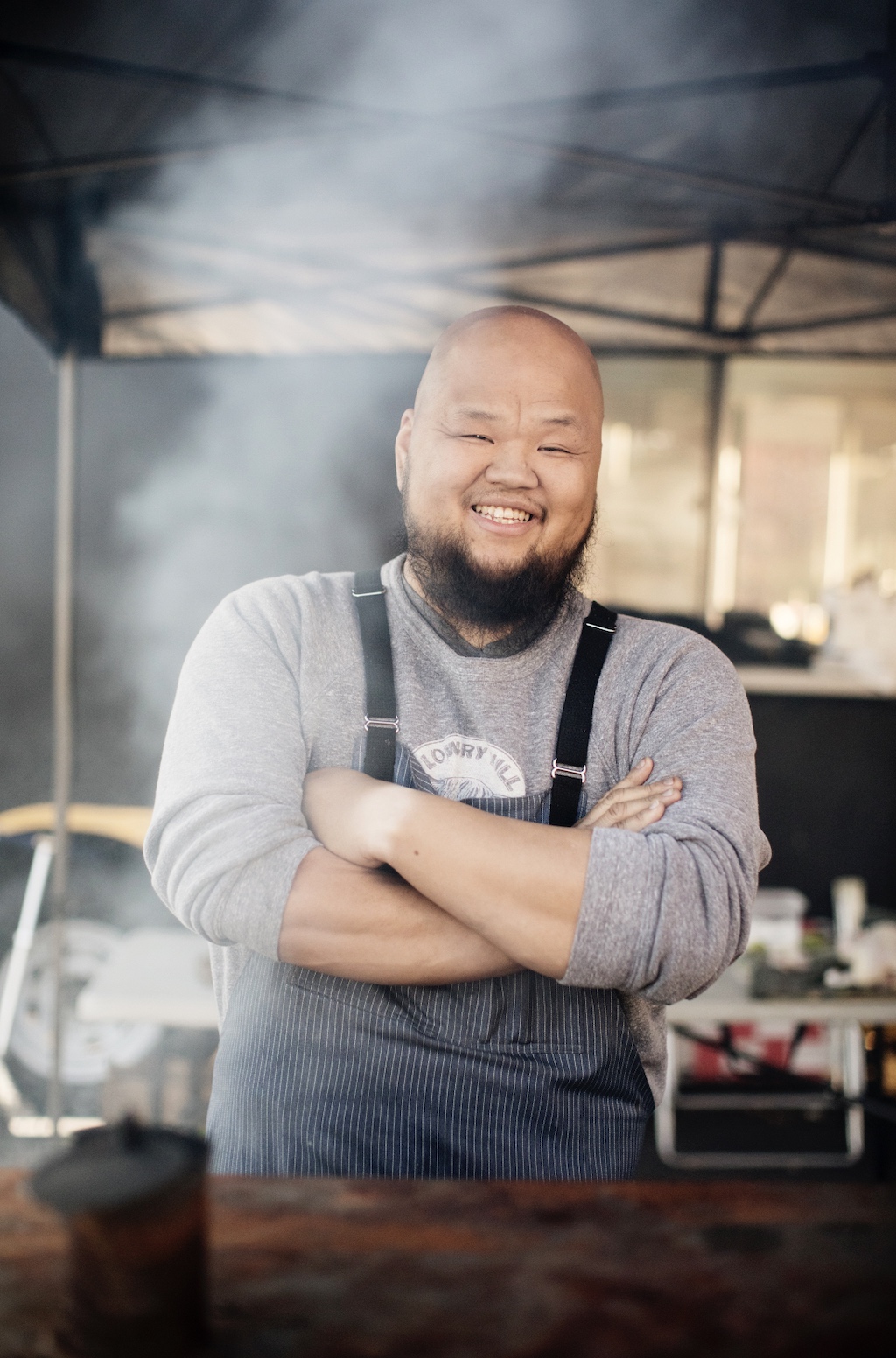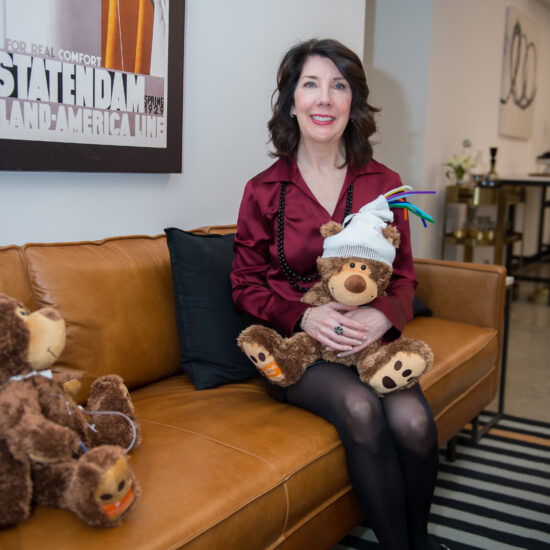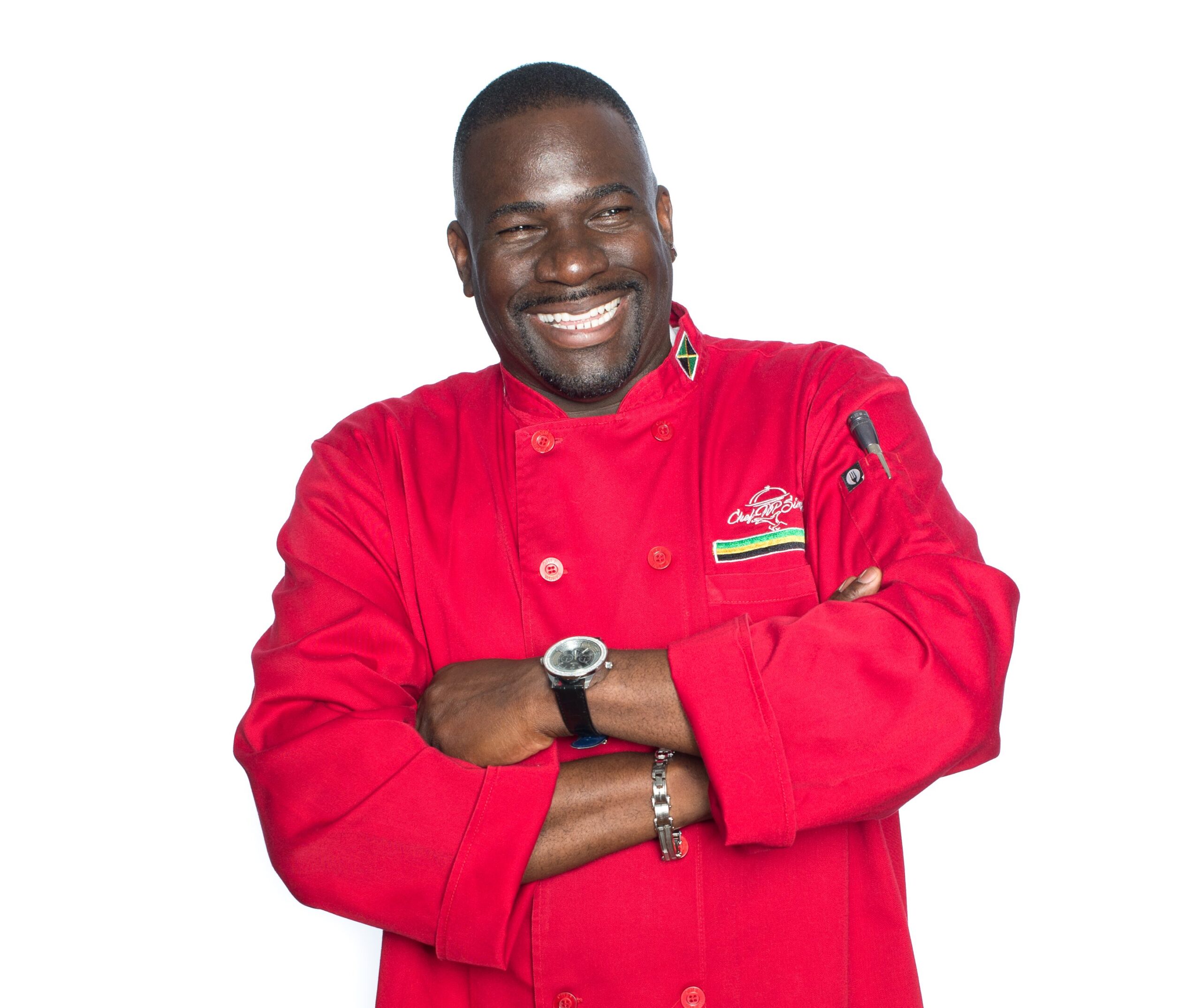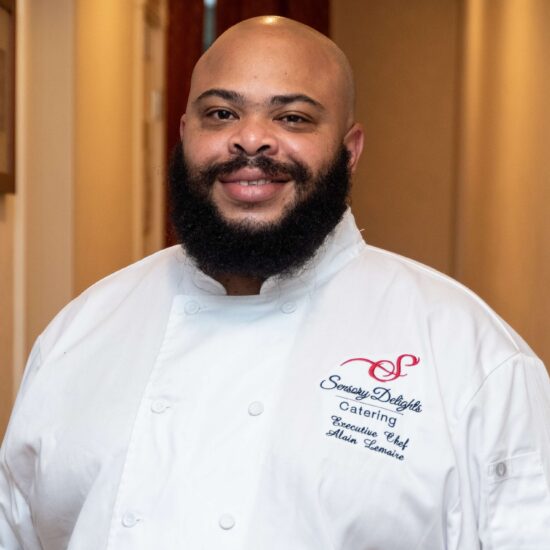In Chef Yia Vang’s world, the combination of food and culture is everything. As a proud decedent of the Hmong people, Chef Vang journey to the culinary industry has more to do with expanding his family tradition and values. Each dish he prepares gives a signature detail to the Hmong people and their beautiful culture. The former contestant on Iron Chef has learned a lot since transitioning to the culinary field. In his own words, he will tell you that his family, upbringing and degree in communication plays a significant role in choosing this career path that he seems to be his destiny.
I sat down with Chef Vang to discuss food, culture and his career. Here’s the entire interview in depth:
AF: Although you have a communication degree from the University of Wisconsin-La Crosse how did you transition into the culinary industry? What was the motivation?
YV: The truth of the matter is that I never wanted to cook. I went to college. I had two goals at college. One was to play college football. After the first year, it didn’t really work out. I suffered injuries to my back and knee. So, it didn’t work out for [in terms of football]. Two, I wanted to work with nonprofit organizations. I thought nonprofit sector would be something of interest. I wanted to help change the world. As I got older, I started to focus more on changing my world (lol). I’ve always worked in a kitchen setting. I grew up in the kitchen. My family would always cook. I learned how to use all the utensils and cooking from my family when I was young. I always tried to stay away from that. I remember joking with my friends about my career path. It’s like when you’re in high school and you start dating someone. You’re all in love in the beginning, but when you get to college, it changes. But, when you go home for breaks and see that person, old emotions starts to come up. That’s how it was with me when I describe cooking.
To me, it was knowing my why? Is this a new trend. Or, a cool sexy job that everyone wants to do? When we first started, everybody was getting a food truck. The TV media chef was starting [to gain momentum] and everybody wanted that. When I started, I was a line cook; learning how to work the line.
Actually, my degree in communication REALLY helped me. It help me with being able to get my message across. So, the vehicle we used was food.
AF: How do you describe your overall cooking philosophy?
YV: I don’t know if I have an overall philosophy. The food that we cook is derived from the food that we grew up with. As Hmong kids, we ate food that most people didn’t even know about. We were part of a people group that most people didn’t know about. You have Asians, southeast Asian and then you have Hmongs. It’s like three layers to find out who we were. As a Hmong kid growing up, it was hard [for some people] to define who we are. That was a question we all have to answer. And, the one thing we had that separated us was our food. It was the food that mom and dad made. It was delicious. Hmong food is a type food that IS a philosophy. The philosophy is the world around us. We can use this world to create delicious meals that not only nourish our body, but it brings the community together.
AF: You have your own business. Take me though the emotions when you open Union Hmong Kitchen? What was the inspiration?
YV: We started off as a pop-up. Seven years ago, the word pop-up in Minneapolis was brand new. At first, I didn’t know if people would like it. I worked in the restaurant industry so I use some of those experience for this transition.
AF: What did you learn from being a contestant on Iron Chef?
YV: You see how the sausage are made, right (lol). You learn how to play the game. It’s not strictly culinary, it’s a game. It’s a strategy that goes into it. There’s also an entertainment aspect that goes into it too. Thirdly, the one thing I’ve learned that there’s huge production value that comes with it in terms of communication. You have to be able to communicate what you’re trying to do. Those were the three major things I learned. It was fun. It was a great opportunity and I learned so much from being on that show. Plus, it was place where we could showcase Hmong food. The Hmong community supported us as well. We’ve had people from around the world reach out to us with encouragement after being on the show. That’s the coolest and greatest thing about Hmong people. When one person succeeds, the whole community succeeds!
AF: What’s your favorite dish to prepare?
YV: I go in stages. Some of the simple noodle dishes that my moms made for us when we were growing up. For example, a curry noodle dish is really fun to prepare. For me, it’s more important to prepare a dish with my mom and dad. Standing in the kitchen and cooking a meal along with them has been really cool. I remember when my parents had that “Ah hah” moment. We were dong a fundraiser. We were preparing Hmong food from my mom and dad’s table. Each ticket was about $150. My parents couldn’t believe that someone would pay that much for the food that the would generally prepare at home. They were blown away. They couldn’t believe how people valued our food and culture.
AF: Who has been your biggest critic? How did you implement that criticism into your company’s workflow?
YV: There’s a small voice of Hmong people who don’t like what I’m doing. They see it as a way of bastardizing authentic and traditional Hmong food. It’s really pushed me to help breakdown and clarify what we are trying to do. It’s help me to be able to answer some of the questions that were coming out regarding our food being authentic or using authentic products. I would tell people that Hmong food is not just a type of food. It’s not about the product or the product. It’s a philosophy. If you want to know Hmong food, you have know our people. Our story is intricately woven into the food that we eat. It’s our culture DNA that’s made out of food that we eat. If you want to know our people you have to know our food. By knowing our food, you will know our story. You’ll know where we been and it will show the trajectory to where we’re going.
AF: What’s next for you and your brand?
YV: Right now, we’re building our brick and mortar. We are securing the last of our funding. We are working through a bunch of different things. The key thing is being able to talk on our traditions and culture through our foods. Through every generation, there’s something added to the culture. It progresses. Culture change because it’s affected by people who change. One of the things I learned is that people love talking about change, but if you want something to change or you desire change, you have to change yourself. Then, the change will come. It’s ok [to change].
You can follow Chef Via Vang via Instagram @YiaVang70.




